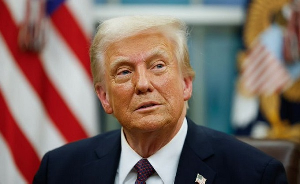The Ministry of Foreign Affairs and Regional Integration, in collaboration with the ECOWAS Commission on Thursday, organized a half-day sensitization workshop on the creation of Early Warning and Response Mechanism in the ECOWAS Member States.
Early Warning System is the science, technology and art of gathering, analyzing and disseminating information that could be used to prevent and/or mitigate threats to human security.
The workshop, which was officially opened by Mr Charles Owiredu, a Deputy Minister of Foreign Affairs and Regional Integration, aimed at making a presentation of ECOWAS Early Warning and Response System to Government Officials and relevant stakeholders in the bid to establish the early warning system and mechanism office in Ghana.
In 1978, ECOWAS ratified the first protocol on Non-Aggression on regional early warning system followed by the signing of the Protocol on Mutual Assistance in Defence to promote peace and security within the sub-region.
However, in the 1990s, it became evident that these instruments were significantly inadequate to address burgeoning intrastate conflicts in the ECOWAS region.
Against this backdrop, the strategic framework to establish a National Coordination Centre for Early Warning and Response Mechanism in each ECOWAS Member State was adopted at the 45th Ordinary Session held in Accra, in July, 2014.
Mr Owiredu said establishing National Early Warning and Response Centres had become very crucial; adding that the concept of an early warning sign was no new phenomenon in the face of varied challenges that ECOWAS Member States were confronted with, ranging from security and terrorism, environment, crime and criminality, governance and health.
He said the innumerable benefits of establishing a National Centre for the coordination of early warning and response mechanisms were desirable by every Member State; which include prevention and reduction in loss of lives, and prevention and mitigation of crises related to the environment like drought, farmer/herder conflicts.
Mr Owiredu said with the establishment of national centres, ECOWAS Member States could share information, implement conflict prevention and manage crises, while protecting human security at the national and regional levels.
He underscored the Centre’s role was to warn the Government of threats to human security, propose appropriate action, coordinate and ensure monitoring of the implementation of response to warning while optimizing information collection, quality and analysis through a participative approach involving all relevant stakeholders.
“While anticipating the establishment of a Centre for the coordination of early warning and response mechanism in Ghana for numerous benefits we stand to gain as a nation as far as early warning signs and response mechanisms are concerned, it is my ardent hope that the link between early warning signs and early response is further strengthened for optimal outcomes,” he said.
“In the ensuing days, the Ministry will constitute a task force with representatives from key ministries to draft the instrument for the establishment of the Early Warning Mechanisms in Ghana. It is my expectation that we will all deploy efforts to ensure the success of this important enterprise.”
Madam Finda Koroma, Vice President, ECOWAS Commission, said the vision of the ECOWAS early warning system was to have in a place, a fully integrated and functional early warning system, providing the office of the President of the Commission with timely reports and analysis to enable effective responses in preventing and mitigating violent conflicts in the sub-region.
With elections due in Ghana in December, Madam Koroma, therefore, appealed to the Government to ensure that a National Early Warning Centre was established in the country by the close of June this year.
General News of Friday, 13 March 2020
Source: GNA
ECOWAS holds workshop on Early Warning and Response Mechanism
Entertainment












